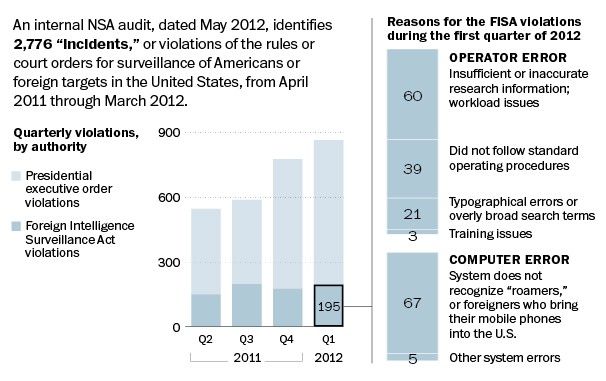In this week’s segment of “What We Know Now,” Up host Steve Kornacki shares the new things we have learned with guests Krystal Ball, MSNBC’s “The Cycle“; Rick Wilson, Republican media consultant; Sam Seder, radio host; and Nia-Malika Henderson, National Political Reporter, The Washington Post.
Area 51 Location Revealed In Government Document, Still No Mention Of Aliens
Huffington Post
The government shed some light on an age-old mystery on Thursday, releasing documents that included the location and first official government acknowledgment of the secretive Area 51 facility, a staple of conspiracy theories about alien life and futuristic government technology.
The National Security Archive at George Washington University got their hands on the report, eight years after filing a Freedom of Information Act request. The document gives previously classified information on the development of the U-2, a spy plane that was revolutionary in 1955, when a CIA agent signed a contract with Lockheed Martin to begin producing the aircraft.
Unease at Clinton Foundation Over Finances and Ambitions
by Nicholas Confessore, The New York Times
Soon after the 10th anniversary of the foundation bearing his name, Bill Clinton met with a small group of aides and two lawyers from Simpson Thacher & Bartlett. Two weeks of interviews with Clinton Foundation executives and former employees had led the lawyers to some unsettling conclusions.
The review echoed criticism of Mr. Clinton’s early years in the White House: For all of its successes, the Clinton Foundation had become a sprawling concern, supervised by a rotating board of old Clinton hands, vulnerable to distraction and threatened by conflicts of interest. It ran multimillion-dollar deficits for several years, despite vast amounts of money flowing in.
And concern was rising inside and outside the organization about Douglas J. Band, a onetime personal assistant to Mr. Clinton who had started a lucrative corporate consulting firm – which Mr. Clinton joined as a paid adviser – while overseeing the Clinton Global Initiative, the foundation’s glitzy annual gathering of chief executives, heads of state, and celebrities.
NSA broke privacy rules thousands of times per year, audit finds
by Barton Gelman, The Washington Post
The National Security Agency has broken privacy rules or overstepped its legal authority thousands of times each year since Congress granted the agency broad new powers in 2008, according to an internal audit and other top-secret documents.
Most of the infractions involve unauthorized surveillance of Americans or foreign intelligence targets in the United States, both of which are restricted by statute and executive order. They range from significant violations of law to typographical errors that resulted in unintended interception of U.S. e-mails and telephone calls.
Click on image to enlarge
‘The Butler’ to prevail at box office this weekend — Oscars next?
by Glenn Whipp, The Los Angeles Times
“Lee Daniels’ The Butler” will be the No. 1 movie at the box office this weekend after taking in about $9 million in ticket sales last night. That puts the historical drama on track for a $27-million weekend, significantly more than The Weinstein Company’s initial lowball estimate of $15 million.
It also means “The Butler” will open to roughly the same weekend take as DreamWorks’ 2011 civil rights drama “The Help,” which also debuted in August and brought in $26 million on its way to a $169.7-million domestic gross.
Will “The Butler,” which tracks the life of an African American man who worked for 34 years as a White House butler, have the same staying power as “The Help”? Oprah Winfrey, who stars in the film with Forest Whitaker, obviously gave the movie an initial boost at the box office, proselytizing on its behalf to her hugely loyal — and large — following. According to a Fandango poll, 72% of ticket-buyers said Winfrey increased the likelihood that they’d see the film.



 Welcome to the
Welcome to the 
 Throughout the late 1850s, treaty violations by the United States and late or unfair annuity payments by Indian agents caused increasing hunger and hardship among the Dakota. Traders with the Dakota previously had demanded that the government give the annuity payments directly to them (introducing the possibility of unfair dealing between the agents and the traders to the exclusion of the Dakota). In mid-1862 the Dakota demanded the annuities directly from their agent, Thomas J. Galbraith. The traders refused to provide any more supplies on credit under those conditions, and negotiations reached an impasse.
Throughout the late 1850s, treaty violations by the United States and late or unfair annuity payments by Indian agents caused increasing hunger and hardship among the Dakota. Traders with the Dakota previously had demanded that the government give the annuity payments directly to them (introducing the possibility of unfair dealing between the agents and the traders to the exclusion of the Dakota). In mid-1862 the Dakota demanded the annuities directly from their agent, Thomas J. Galbraith. The traders refused to provide any more supplies on credit under those conditions, and negotiations reached an impasse.
Recent Comments